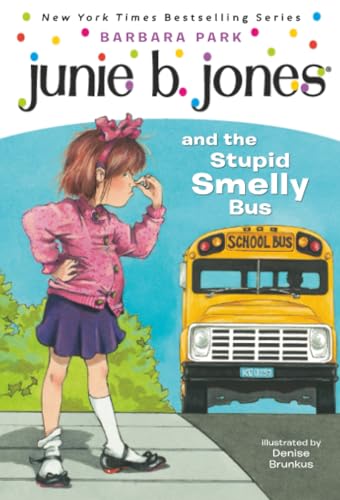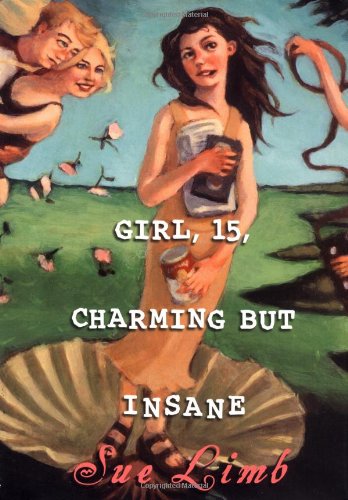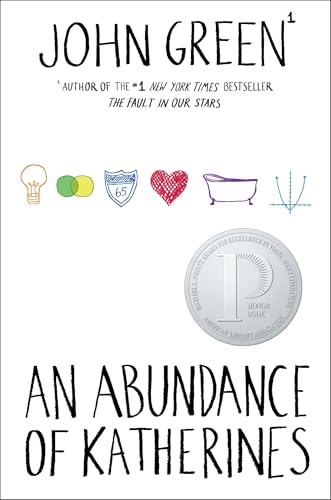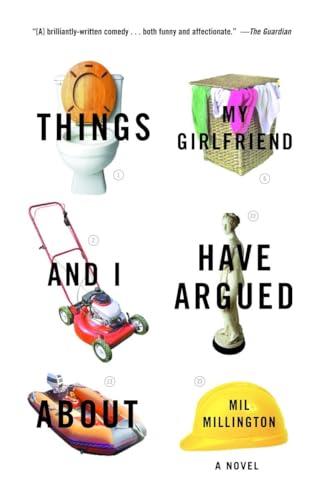I can’t say that I love Twitter, but I’m beginning to use it better and see some applications in my Online Social Media Approach (OSMA). However, I do see that Twitter appears to be sucking the blog commenting right out of us, and that’s a shame. It is definitely easier to reply on Twitter, where brevity is a virtue. Commenting on a blog post can feel daunting, with its space to write using as many characters as you want and its chance to add something of value to the conversation. But people, we — and by we, I mean you — are missing out on some incredible opportunities to network by commenting.
For the past few months, I’ve been writing at Booklights, which is a blog at PBS. Every time I put up a post there, I mention it here. Jen Robinson does the same with her posts. Sometimes we get a fair number of comments. Occasionally we really strike a chord, like with Susan’s First Time Reads post about the children’s books you wish you could read for the first time. We certainly like it when we get comments, but this isn’t about us. It’s not even about me (as surprising as that may seem to those of you who know me best).
This is about you. Because you have the opportunity to write a comment on a blog at PBS where other thoughtful people might read it and take a look at where you blog, who you are, and what you’ve written. Maybe the PBS blog will need guest bloggers and look in the comments for bloggers who’ve shown interest in the blog and topic areas. Maybe parents or teachers or librarians are reading the comments after a post and might see your insightful addition — perhaps to Back to School picture books that I’ve posted about today — and then might follow the link back to your blog for other ideas.
Yesterday, I posted at ForeWord about summer reading programs, reading lists, and prizes. I know book bloggers have opinions about these topics. It seems like a good idea to share some of those thoughts in the comments of a respected online journal. One that obviously employs — and by “employs” I mean “gives money to” — guest bloggers, one of whom you could be if ForeWord knew about you. I’m just sayin’.
I don’t want to come off as angry or peevish, and I hope that those of you who follow me understand that. I do think commenting is important and is something that we are losing in our community to the detriment of all. Lee Wind and I even ran a Comment Challenge to that effect in November. Certainly, we’d all like more comments. But my point here is for the bloggers who wonder how to get their blog noticed, how to get it to the next level... well, sometimes opportunity isn’t tweeting.
Of course, if you’re busy twittering about how hot it is in August — clearly an underreported topic — well, I don’t want to interrupt you.
The Rundown
One of the bestselling preschool books of recent times was Walter the Farting Dog. At the same time, the American Library Association named as one of its best books Michael Rosen’s Sad Book, a book in which Mr. Rosen talks about his despair over the death of his son. I believe that, for most of us, what we want lies somewhere between a flatulent canine and overwhelming grief.
View my complete profile
Email MotherReader

Email MotherReader

Share It
Blog Archive
-
▼
2009
(215)
-
▼
August
(16)
- ForeWord and Booklights and ALSC
- KidLitosphere Happenings
- Book Promotion: A Conference Scenario
- Poetry Friday: Human Lyrics
- When Opportunity Knocks, Are You Too Busy Twitteri...
- ForeWord and BBAW
- A Pearl in the Storm
- Poetry Friday: Sand Art
- Booklights and More Booklights
- One Shot Southeast Asia: When Heaven Fell
- Getting Stuff and Making Money
- Nonfiction Monday: Round-Up & Pandas
- New Cover for Liar
- Booklights and Whining
- KidLitosphere Conference 2009
- Carnival of Children’s Literature and Music Video
-
▼
August
(16)
Followers
MotherReader Suggests
Funny Books for All Ages
Newborn
One Year
Two Years
Three Years
Four Years
Five Years
Six Years
Seven Years
Eight Years
Nine Years
Ten Years
Eleven Years
Twelve Years
Thirteen Years
Fourteen Years
Fifteen Years
Sixteen Years
Seventeen Years
Eighteen Years
Adult
Newborn

One Year
Two Years

Three Years
Four Years
Five Years

Six Years
Seven Years
Eight Years

Nine Years
Ten Years

Eleven Years
Twelve Years
Thirteen Years

Fourteen Years
- Born Too Short
- Sex Kittens and Horn Dawgs Fall in Love
- Once Upon a Marigold
- Angus, Thongs, and Full Frontal Snogging
Fifteen Years

Sixteen Years
Seventeen Years

Eighteen Years
- Our Dumb Century: The Onion Presents 100 Years of Headlines from America’s Finest News Source
- How to Ruin Your Life
- The Daily Show with Jon Stewart Presents America (The Book): A Citizen’s Guide to Democracy Inaction
Adult

- I’m with Stupid: One Man. One Woman. 10,000 Years of Misunderstanding Between the Sexes Cleared Right Up
- The Sex Lives of Cannibals: Adrift in the Equatorial Pacific
- Things My Girlfriend and I Have Argued About: A Novel
- Why Not Me?
- Good in Bed
- I Love Everybody (and Other Atrocious Lies): True Tales of a Loudmouth Girl
- Bitter is the New Black: Confessions of a Condescending, Egomaniacal, Self-Centered Smartass, Or, Why You Should Never Carry A Prada Bag to the Unemployment Office
Copyright © 2006–2015 MotherReader All rights reserved.
Blogger Template by Anshul Dudeja | WP Theme by Templatelite
Blogger Template by Anshul Dudeja | WP Theme by Templatelite














23 comments:
Well Said! Interestingly, I'm getting a lot of comments when my posts hit my facebook page - many more there than on my blog itself!
I think we're going to need "The Comment Challenge" this year more than ever!!!
Great work, MotherReader!
Namaste,
Lee
I'm sayin. I much prefer blogs to tweets. And comments to tweets. Pretty much anything to tweets. Wait, I don't have a twitter account anymore, so never mind.
Meanwhile, I was busy blogging about the heat. I forget to use Twitter. And I also don't really think it has all that much to offer. I try to remember to tweet about my blog posts . . . perhaps that's a valid use for it?
With so many bloggers jumping to Facebook, my comments have been down for a long while anyhow. Even when I run Big Events. My stats show my readership is up though. Weird.
I'm with you, Pam. No tweeting for me.
Commenting on blogs always seemed like such a forward thing to do, as if I knew the blogger personally and had a right to jump in on her conversation.
In February this year several friends ganged up and harassed me into joining Facebook.
After a few shy and mostly ignored posts, I began to realize the world would not crash if I said something stupid. Now I'm bold enough to comment on the blogs I subscribe to, like yours.
You won't be shocked to hear that I disagree with you on a few major points. To begin with, blog commenting in our kidlitosphere circle has been diminishing long before most of us started Twittering. This was even a topic at the first KidLitCon, wasn't it?
On a positive note, I completely, wholeheartedly agree that commenting is a great way to network and make friends and connections. It is a vital part of growing community and reputation. It's fun, too. And as you note, guest blogging is a great way to broaden community (and even get paid). It's a good thing.
Now, I would argue that this has NOTHING WHATSOEVER to do with Twitter. And I'd further argue that Twitter leads to those same opportunities. No, not if you say "sure is hot here!" all the time, but would that help you on a blog? No. However, if you engage in conversation on Twitter and share things of value? Absolutely (and somewhat to initial surprise).
Twitter can also be a great amplifier - it drives traffic to both my sites when I post about them. I don't tend to find that it drives comments, it's true, but conversation on Twitter? Yes. My community is broader and bigger because of my additional use of Twitter. If everyone in the kidlitosphere embraced it, the community, I believe, would have more reach as well... not less.
We all embrace and ignore different tools (Twitter, Blogs, Facebook, whatever), but I think you're changing the focus of your post here by criticizing millions of folks who tweet as if that is the cause of a problem that predates it and, from my point of view, is only tangentially related.
Greg (who came here this very second because he saw Lee Wind's tweet before he saw this post in his reader. Huh. Twitter folk do comment!)
Lee, I'm totally up for another Comment Challenge!
TN, I saw your post about dropping Twitter and thought about how strong you were to be able to turn away. Power to you.
KF, I only tweet about some of my blog posts, not all. I also do like the opportunity to share quick links and reminders.
Jama, I envy those who didn't or don't need to get started on Twitter. It seems much... simpler that way.
Greg, I hoped I'd hear from you. ;^) It's true that comments have been going down steadily as there are more blogs and more demands on our time. I wasn't trying to get Twitter to take all the blame. I do think that it offers good ways to network and to promote your own brand and each other.
But I do think that there is such a tendency to run off the New Cool Thing that we start to miss the options that are already in front of us. Commenting on blogs, especially adding to the conservation in an engaging way, makes people check out your blog, ie your writing. For bloggers looking to expand their base or even find ways to get paid, it provides a more appropriate forum. For instance, I wonder if folks might check out your profile and blog based on your interesting points. I know I would. (Except for the fact that I already know your blog, and I suppose your profile as well.)
MR - as I said, I agree with you about the importance of blog commenting. That was true before Facebook and before Twitter and before whatever comes next, too. That said, you pit the two against each other, and I think that's the completely wrong approach. They can be complementary, can add more opportunity, and neither one has to be painted negatively or
My point is that one could just as easily write a post saying "when opportunity knocks, are you too busy blogging to answer?" because I guarantee you that you can find opportunities on Twitter, Facebook, LinkedIn, friendfeed, other networks and offline as well if you looked at what's already in front of you. Why make things exclusionary? Let's look for synergies and ways to solve the problem rather than creating obstacles.
I loved the comment challenge, and it has certainly changed the way I think about being a blog visitor.
Btw, I am a terrible Twitterer...which is why I signed up for Greg's session on social networking when he comes to Seattle in a few months!
The places where I most often see lots of comments are on the sites do that a ton of giveaways, and the comments are from people throwing their names into the hat.
Also, any controversial post about the book blogosphere will often generate a lot of commenting. But in the end, the internecine blog-issue posts could drive away a more general reader.
Commenting in different arenas certainly does help enlarge the circle! I enjoy a couple of the science & nature blogs, for example, and could comment more often there.
I'll be forever grateful for the Comment Challenge last year. I was a lurker until I found your challenge and now I enjoy commenting on other blogs (some might even wish to shut me up!) So I hope you run it again. It was great to find new blogs and discover a whole community!
I feel as if I am simply going through the motions with Twitter. It's fine for my doll-making business and for sharing links, but I still favor commenting on blogs.
Okay, sorry about my Tweet telling you I wasn't going to comment on your post. Obviously I didn't mean it. ;)
I guess I see Twitter as a tool to expand my blog exposure and connect further to readers and bloggers instead of it being something that takes away from the exchange of ideas. I've started Tweeting my blog posts because I've found it gets me more traffic.
Comments are great. I am not one to look a good comment in the mouth. We all love them...
But Twitter feels more immediate to me. When someone replies and I can kind of have a conversation with them, it feels almost like Instant Messaging. While in comments, I'm often not sure if people see my replies (and I rarely subscribe to comment threads).
Maybe it's because I installed TwitterFox in my web browser, which makes it sooo much easier to keep up with than using Twitter on the web. (In my opinion.)
OH. And there's a weekly #kidlitchat on Twitter, which I've lurked on occasionally. I'd argue that things like that are adding to my sense of the community, not taking away from it.
You're right that 140 characters in a Tweet is much different than the unlimited space in a comment. But I'd argue that Twitter is just a different way to communicate and network, not necessarily a worse way.
(I'll add to this that I'm still fairly a newbie, having blogged for less than two years. People who have been blogging longer may have a different sense of the community than I do.)
Hmm, well, now I feel a responsibility to comment here of course. But do I have anything to say? I try to let that guide my choice of whether to comment. Tweeting certainly never stops me from commenting. Occasionally I'll send a private email instead of commenting, depending on how well I know the blog's author. I don't use Twitter much. Thank you for the reminder that comments are appreciated, though. Sometimes commenting feels much like talking to the wall (particularly if I don't subscribe to the comment feed, which I usually don't), so I go through phases. Perhaps I'll try an upswing phase again soon.
Chris Brogan happens to have a post up today called Simple Touchpoints of Loyalty that touches on parts of this conversation... though from a different angle. Worth a read.
I don't think Twitter and blogging are somehow exclusionary, nor do I think that's what MR is trying to say (of course, I have the advantage of living with her, so I've been able to get a pretty good sense of her views on the topic).
While microblogging is fine for what it is (MR and I are Twitter users), if you're looking to be recognized for your writing, it's helpful to put yourself out there in ways that will be conducive to having your writing seen — and by people who otherwise might not be following your tweets.
Twitter links to longer posts are great for letting your audience know about blog content — but let's say I'm someone who's looking for talented new writers. If I don't already know your writing, a 140-character one-liner doesn't provide a compelling case to click through to read the full post (of course, neither is a "Me, too!" comment). But if I see someone's a regular commenter on articles I am already reading (and has interesting things to add to the conversation), then I'm more inclined to check their stuff out.
And as with anything else, there's the question of allocation of resources — like it or not, there are only so many hours in the day. And so everyone has to figure out how best to direct their efforts (and that's not going to be the same for all).
Of course, take anything I say with a grain of salt — I'm notorious for being attracted to shiny new objects, so I was likely to be fascinated by Twitter from the start. And most of my evidence is anecdotal, so I welcome more informed pushback.
MR, I agree with your "running to the next cool thing," comment, which is the part that bothers me about some Twitter folks. I'm not against Twitter for those who like it, and feel they benefit from it, especially if it is used as an adjunct to their blogs, FB, etc. But on LJ, especially, not just a few, but many have abandoned their blogs in favor of Twitter and FB. This leaves a potential new friend only a bunch of FB updates and tweets to get to know someone and their writing.
I understand the value and excitement and fun of the immediacy of tweets -- when good, important information is shared. But far too many, tweeting every hour on the hour about shampooing their hair, or walking their dogs, etc., are flooding the net with a misguided sense of self importance.
We all want to be reality stars. If not on TV, then on the net. Twitter and FB can be invaluable tools for networking and marketing, if used correctly and judiciously.
Yeah, all that. I was late to Twitter, and I'm not sure I love it, but I do think I get a bit of traffic when I post my reviews there as opposed to just sticking them up.
I do like comments though... and I always feel sad for the posts that don't have any. :-) And, yeah, I could be better: too often I lurk and don't comment, not because I don't want to, but because I don't think I have anything interesting to contribute. But, that's my problem, and not yours. :-)
Bill - I don't know many who think they're going to be recognized for their writing based on just the 140 characters in their tweets. So what? That, to me, is a completely different conversation than the original post. My point is that a well worded tweet can get plenty of people, both in and out of your network, to see your writing (see below).
As to your point of getting your writing seen by people who might not see your tweets... sure. You should also get your writing seen by people who might not see your comments on your blog or other blogs, too, don't you think? Maybe you could do that via Twitter... not only by directing people to your own blog, but even more so to blogs where you participate in the comments and/or where the blogger is brilliant and deserves attention.
Here's some non-anecdotal evidence that Twitter can be effective in getting your writing seen. A more recent update would have you add at least 1,000 more clicks/visitors to the tally. Again, there are many ways to find opportunity, and they can all work together.
I don't have any disagreement with the idea of the value of commenting. It's critical. However, my point is that the post sets up a straw man argument.
I'm all about getting people to be ready when opportunity knocks - it's a central premise of my consulting business! And that is why I'm here saying that we all need to keep more of an open mind here about where opportunity might be found. There is no "one right way" in this stuff, ya know?
Greg,
When I wrote this post I was concerned that it might be misconstrued, and as it turns out, I guess I wasn't clear enough, which is why I tend not to write posts like this.
I'm not against Twitter. In the first sentence I say how I don't love it, but I'm learning to use it better. At the end I say that sometimes opportunity isn't tweeting.
The point I was trying to make - apparently unsuccessfully - is that when we get excited about the next new thing, we can lose track of the last old thing, even when it worked. I didn't say that Twitter can't be part of the plan. I was hoping to remind people that it can't be the entire plan either.
With the post's title and second sentence, I don't know how you expected it to be construed any other way. The thing is, you have done a brilliant job of following all the advice you offer here and building your blog and "brand" too. What you're saying works really well, and you're proof of that. That said, not everyone has the same goals with their blog as you nor the same ways of reaching their goals, even if that means using the shiny new thing. That doesn't make their methods less valid than yours nor does it make yours less effective. Or put another way, blogging was once the shiny new thing... as was the written word!
to me, twittering and blog commenting are two entirely different things with two different purposes. twitter can be more of a conversation because of the immediate feedback / interaction, and also allows it to go beyond one person because of the public nature.
do i like comments? yes! but i also think comments are not the only way to judge or evaluate something (ie, comments = quality). As susan t. points out, a blog can drive up its comments by contests or controversy, neither of which means quality (not saying a blog with them is not quality; just that its not a simple numbers game).
also, many people don't have the time or access to comment or comment frequently enough for it to be a conversation. if you're at a school, you may not have time or the blogs may be blocked. I know librarians who don't have computers when off desk, and when on desk aren't supposed to be doing personal blog reading. maybe they can get away with the reading, but not commenting.
i don't do blog stuff at work (or only do it if it ties into something at work, such as library blog reading); so actually, yes, it IS a bit of a bother to say during my hour/ hour and a half at night when i do blog stuff, it now needs to include clicking thru to the blogpost & reading all the comments & commenting & returning, etc. Do I do that? Yes; but no, not as frequently as some would like because a, time limitations and b, access limitations.
When I'm home, without those limitations? I can do more. but even then, there is real life/ real world that I want to participate in, also.
So I guess part of my problem with valuing comments above other participation is I think it privileges those who have time and access that others don't.
I began Twittering/Facebooking (mine are connected) links to my posts when I wrote them and my traffic increased significantly. Which meant more comments. :) So there's a flipside to this situation, too.
Post a Comment